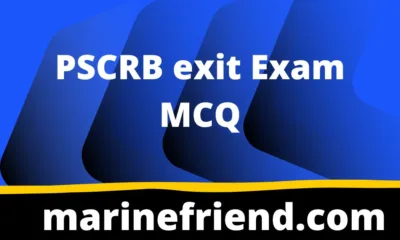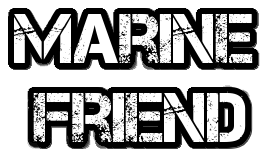EFA
Efa exit exam questions and answers part 2

Efa exit exam questions and answers part 2
Here are 30 multiple-choice questions (MCQs) with answers for the DG Shipping EFA (Elementary First Aid) exit exam:
- What is the first step in approaching a casualty?
– a) Check for responsiveness
– b) Check for breathing and pulse
– c) Check for injuries
– d) Check for medical history
– Answer: a) Check for responsiveness
- How do you control severe bleeding?
– a) Apply a tourniquet
– b) Elevate the wound
– c) Apply direct pressure
– d) Clean the wound
– Answer: c) Apply direct pressure
- What is the correct compression-to-ventilation ratio in CPR for an adult?
– a) 15:2
– b) 30:2
– c) 5:1
– d) 10:1
– Answer: b) 30:2
- How do you treat a minor burn?
– a) Immerse in cold water
– b) Apply butter
– c) Apply ice directly to the burn
– d) Cover with a clean, dry dressing
– Answer: d) Cover with a clean, dry dressing
- What is the purpose of the recovery position?
– a) To open the airway
– b) To control bleeding
– c) To prevent shock
– d) To assess responsiveness
– Answer: a) To open the airway
- How do you recognize a choking casualty?
– a) They are coughing
– b) They are speaking
– c) They are silent and clutching their throat
– d) They are breathing normally
– Answer: c) They are silent and clutching their throat
- What is the treatment for a suspected spinal injury?
– a) Keep the casualty warm
– b) Move the casualty to a more comfortable position
– c) Keep the casualty still and supported
– d) Elevate the casualty’s legs
– Answer: c) Keep the casualty still and supported
- What is the first step in treating a nosebleed?
– a) Pinch the nostrils together
– b) Tilt the casualty’s head back
– c) Apply a cold compress to the back of the neck
– d) Insert gauze into the nostrils
– Answer: a) Pinch the nostrils together
- What is the treatment for a dislocated shoulder?
– a) Immobilize the arm and apply a cold compress
– b) Encourage the casualty to move the arm
– c) Massage the shoulder to reduce the dislocation
– d) Apply heat to the shoulder
– Answer: a) Immobilize the arm and apply a cold compress
- How do you recognize a heart attack?
– a) Severe bleeding from the chest
– b) Sudden collapse and unconsciousness
– c) Severe crushing chest pain
– d) Profuse sweating and pale skin
– Answer: c) Severe crushing chest pain
- What is the treatment for a sprain?
– a) Apply heat to the affected area
– b) Elevate the limb and apply a cold compress
– c) Massage the affected area
– d) Encourage the casualty to move the limb
– Answer: b) Elevate the limb and apply a cold compress
- How do you recognize a stroke?
– a) Sudden severe headache
– b) Sudden loss of vision
– c) Sudden weakness or numbness in the face, arm, or leg
– d) Sudden confusion and difficulty speaking
– Answer: c) Sudden weakness or numbness in the face, arm, or leg
- What is the treatment for a foreign object in the eye?
– a) Rub the eye to dislodge the object
– b) Flush the eye with water
– c) Remove the object with tweezers
– d) Cover both eyes with a clean dressing
– Answer: b) Flush the eye with water
- How do you recognize a diabetic emergency?
– a) Profuse sweating
– b) Rapid, shallow breathing
– c) Unconsciousness
– d) Confusion and drowsiness
– Answer: d) Confusion and drowsiness
- What is the treatment for an asthma attack?
– a) Encourage the casualty to lie down
– b) Administer their prescribed inhaler
– c) Apply a cold compress to the chest
– d) Offer the casualty a drink
– Answer: b) Administer their prescribed inhaler
- How do you recognize a seizure?
– a) Unresponsiveness and absence of breathing
– b) Violent shaking and loss of bladder control
– c) Sudden collapse and unconsciousness
– d) Confusion and drowsiness
– Answer: b) Violent shaking and loss of bladder control
- What is the treatment for a heat exhaustion casualty?
– a) Encourage the casualty to drink cold water quickly
– b) Move the casualty to a cooler place and give small sips of water
– c) Apply a cold compress to the casualty’s forehead
– d) Elevate the casualty’s legs
– Answer: b) Move the casualty to a cooler place and give small sips of water
- How do you recognize a heat stroke?
– a) Hot, dry skin and a rapid, weak pulse
– b) Profuse sweating and pale skin
– c) Rapid, shallow breathing and confusion
– d) Unconsciousness and absence of breathing
– Answer: a) Hot, dry skin and a rapid, weak pulse
- What is the treatment for a casualty with hypothermia?
– a) Immerse the casualty in warm water
– b) Rub the casualty’s skin vigorously
– c) Remove wet clothing and cover the casualty with blankets
– d) Give the casualty a hot drink
– Answer: c) Remove wet clothing and cover the casualty with blankets
- How do you recognize a casualty in shock?
– a) Rapid, shallow breathing and confusion
– b) Profuse sweating and pale skin
– c) Unconsciousness and absence of breathing
– d) Rapid, weak pulse and cold, clammy skin
– Answer: d) Rapid, weak pulse and cold, clammy skin
- What is the treatment for a casualty with a suspected fracture?
– a) Encourage the casualty to move the affected limb
– b) Apply a cold compress to the affected area
– c) Immobilize the affected limb and support it in the position found
– d) Elevate the affected limb
– Answer: c) Immobilize the affected limb and support it in the position found
- How do you recognize a casualty with a head injury?
– a) Profuse bleeding from the head
– b) Loss of consciousness and confusion
– c) Sudden collapse and unresponsiveness
– d) Severe headache and dizziness
– Answer: b) Loss of consciousness and confusion
- What is the treatment for a casualty with an open chest wound?
– a) Apply a dressing and bandage firmly
– b) Encourage the casualty to take deep breaths
– c) Cover the wound with airtight material
– d) Elevate the casualty’s legs
– Answer: a) Apply a dressing and bandage firmly
- How do you recognize a casualty with a suspected poisoning?
– a) Profuse sweating and pale skin
– b) Rapid, shallow breathing and confusion
– c) Unconsciousness and absence of breathing
– d) Nausea, vomiting, and confusion
– Answer: d) Nausea, vomiting, and confusion
- What is the treatment for a casualty with an electrical burn?
– a) Apply a cold compress to the burn
– b) Remove the casualty from the electrical source
– c) Immerse the burn in cold water
– d) Elevate the affected limb
– Answer: b) Remove the casualty from the electrical source
- How do you recognize a casualty with a suspected heart attack?
– a) Sudden collapse and unconsciousness
– b) Severe crushing chest pain
– c) Profuse bleeding from the chest
– d) Rapid, weak pulse and cold, clammy skin
– Answer: b) Severe crushing chest pain
- What is the treatment for a casualty with a suspected stroke?
– a) Encourage the casualty to lie down
– b) Administer aspirin
– c) Keep the casualty warm
– d) Seek medical help immediately
– Answer: d) Seek medical help immediately
- How do you recognize a casualty with a suspected fracture?
– a) Severe swelling and deformity
– b) Profuse bleeding from the affected area
– c) Sudden collapse and unresponsiveness
– d) Severe crushing chest pain
– Answer: a) Severe swelling and deformity
- What is the treatment for a casualty with a suspected spinal injury?
– a) Keep the casualty still and supported
– b) Encourage the casualty to move
– c) Apply heat to the affected area
– d) Elevate the casualty’s legs
– Answer: a) Keep the casualty still and supported
- How do you recognize a casualty with a suspected fracture?
– a) Severe swelling and deformity
– b) Profuse bleeding from the affected area
– c) Sudden collapse and unresponsiveness
– d) Severe crushing chest pain
– Answer: a) Severe swelling and deformity
You can use these questions to practice for the EFA exit exam. Good luck!
Efa exit exam questions and answers part 1
Efa exit exam questions and answers part 3
Also read:
OCTCO exit exam questions and answers
MFA Exit exam questions and answers
PST Exit exam questions and answers
These questions are generated from the e-learning website of DG shipping.
-

 SEAFARERS4 years ago
SEAFARERS4 years agoBsid dg shipping email id and contacts
-

 SEAFARERS4 years ago
SEAFARERS4 years agocommerce se merchant navy kar sakta hai kya?
-

 PSCRB2 years ago
PSCRB2 years agoPSCRB exit Exam MCQ-1
-

 COLLEGES4 years ago
COLLEGES4 years agoGp rating college list approved by dg shipping in india
-

 RAFF2 years ago
RAFF2 years agoRefresher AFF Exit exam Questions and Answers PDF 1
-

 AFF2 years ago
AFF2 years agoAff exit exam questions and answers pdf-1
-

 RPSL4 years ago
RPSL4 years agoBlacklisted RPSL companies 2021/2022/PART-2
-

 RPSL4 years ago
RPSL4 years agodg shipping approved company


